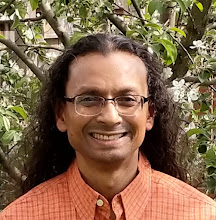The Yamas and Niyamas are not included in the teachings of Swami Satyananda, and my Uncle Niraj questioned the soundness of this approach. Our discussion in the comments of my previous post are reproduced below.
Uncle Niraj wrote:

I agree with much of what you have written in your blog. You are correct in saying the key steps in yoga practice are pratiyahar, dharana and dhyana.
However, the foundational practices are even more important; you cannot build a house without a strong foundation -it will not withstand the winds and the elements.
Hence we have the eight-fold path of yoga:
Yama, Niyama, Asana, Pranayama,Pratyahara, Dharana, Dhyana and Samadhi.
In fact, I personally believe that yama(observances/attitudes) and niyama (disciplines) are the most important; you get these right & you do all your duties and all the other steps just flow naturally. After all, we all exercize, we all breathe, we all have moments of withdrawal,concentration, meditation and glimpses of the higher states of consciousness.
Practising the eight-fold path of yoga just accelerates all of these activities,saving time and effort.
Manoj replied:

Thanks for the excellent comment!
Have you seen the film "Life is Beautiful" with Roberto Benigni? In that film he lies to his son constantly, which would seem to go against the yama of truthfulness, but in this case, constant lying was the yogic path in my opinion.
Similar examples can be given for all of the yamas and niyamas, which makes them quite useless in my opinion, or even harmful when people are led to believe Roberto acted wrongly.
There is only one thing you need to know: perfect thought, word and action have their "foundation" in selfless love, which Roberto depicted beautifully.
Uncle Niraj replied:

Manoj
Thanks for your comment - it is very perceptive.
However, a note of clarification. The yama of truthfulness, in my opinion, really means following/seeking the truth; that is the essence. Or rather, discarding what is false.
You are right - selfless love is most important.
Also the yamas and niyamas are not a rigid set of rules to be followed blindly. They have to be tempered with discrimination and wisdom.
Manoj replied:

So I would agree that seeking the truth is a valid reason for practicing yoga, but I don't know anyone who would say that is what the yama of satya refers to.
Wikipedia has the following definition, which is much more widely agreed to.
Satya (सत्य): truthfulness, word and thought in conformity with the facts.
You also say the yamas and niyamas are not a rigid set of rules. Well they certainly look like a rigid set of rules. Most yoga schools that have incorporated them have done so by making them a rigid set of rules.
If you now say they are not a rigid set of rules, then again, they are misleading and ultimately harmful.
Finally, you say discrimination and wisdom is required. How does one develop discrimination and wisdom? This is solely achieved through the awakening of the chakras. A person with all of his chakras fully closed has no discrimination and wisdom while a person with his chakras and kundalini fully awakened has a very high level of discrimination and wisdom.
The process of awakening the chakras and kundalini involves very simple and easy to understand steps that can be performed by anybody using their physical body, their breath and their mind, where room for misunderstanding is very small.
All the yamas and niyamas do is take a simple process and make it complicated, misleading and harmful for no reason whatsoever as far as I can tell. Many yoga schools are considered cults because they force their students to adhere to these rigid rules leaving many mentally and emotionally scared for life.
In my opinion, the evidence that they are harmful far outweighs any value that they may have. The truth is inside you.
I will finish our debate with a quote from God:

If you want to know what's true for you about something, look to how you're feeling about it.
Feelings are often difficult to discover - and often even more difficult to acknowledge. Yet hidden in your deepest feelings is your highest truth.


No comments:
Post a Comment